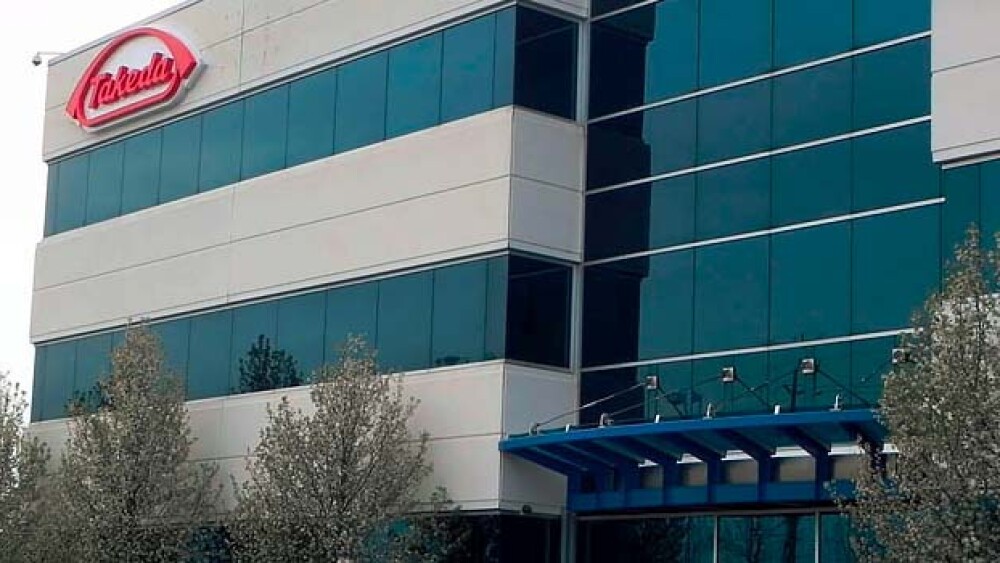Takeda inked a collaboration deal to develop and commercialize Portal’s needle-free drug delivery device for use with some of Takeda’s biologic medicines.
Takeda Pharmaceuticals Company, based in Osaka, Japan, and Portal Instruments, headquartered in Cambridge, Mass., inked a collaboration deal to develop and commercialize Portal’s needle-free drug delivery device for use with some of Takeda’s biologic medicines.
Portal’s device was developed by Ian Hunter at the Massachusetts Institute of Technology (MIT). It delivers, without needles, biologics using a pressurized liquid.
Under the terms of the deal, Takeda will pay Portal an initial payment, and possible milestones up to $100 million.
“There is a need for options to keep improving the experience for patients with life-long, chronic conditions that are managed with the intravenous infusions of biologic medicines,” said Stefan Koenig, Takeda’s Global Program & Brand Lead, in a statement. “This partnership with Portal demonstrates Takeda’s leadership in supporting patients with GI diseases and our commitment to evolve the management of these diseases, such as inflammatory bowel disease, by potentially offering patients the ability to administer treatment in their own at home with a needle-free system.”
The first program Takeda wants to develop with the device is its Entyvio (vedolizumab), a monoclonal antibody for patients with moderately to severely active ulcerative colitis (UC) or Crohn’s disease (CD). It is currently administered via intravenous infusion. It is being evaluated in a Phase III trial as a subcutaneous formulation in adults for the same indication.
The deal is consistent with trends in the industry. Recently, at the 7th Annual Partnership Opportunities in Drug Delivery, numerous companies presented their efforts to develop needle-less approaches to drug deliver, or ways to inject biologics. Mike Hooven, chief executive officer of Enable Injections, a company in Cincinnati, Ohio, said at the meeting, “I think you’re all familiar with the challenges for subcutaneous delivery of biologics. The concentrations are getting higher. The volumes are getting bigger. And what we know is that you can have a great deal of discomfort if you inject too quickly. If you’re not sensitive to the patient tissue back-pressure, you can actually have skin damage if your pressure is too high.”
Patrick Anquetill, chief executive officer of Portal, said of the relationship with Takeda in a statement, “Working with Takeda to adapt the Portal device underscores our mission to empower patients with a leading, next-generation drug delivery platform for self-administration that is designed to reduce the pain and anxiety associated with needle injections in addition to reducing administration time. This partnership allows us to work collaboratively with Takeda’s high experienced R&D team and provides the first opportunity to introduce the Portal device to patients, a pivotal step as we continue to expand its potential and grow our business.”
There are quite a few companies working in this area besides Portal and Enable. They include Insulet, based in Billerica, Mass., Becton Dickinson, Bespak, a subsidiary of Consort Medical, and West Pharmaceutical Services, to name just a few.





